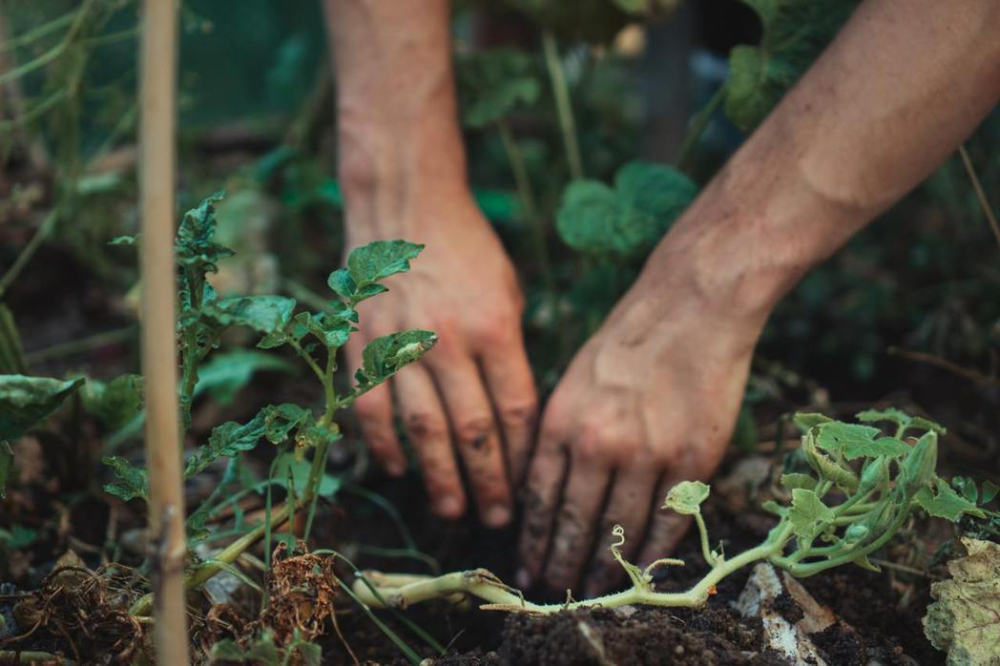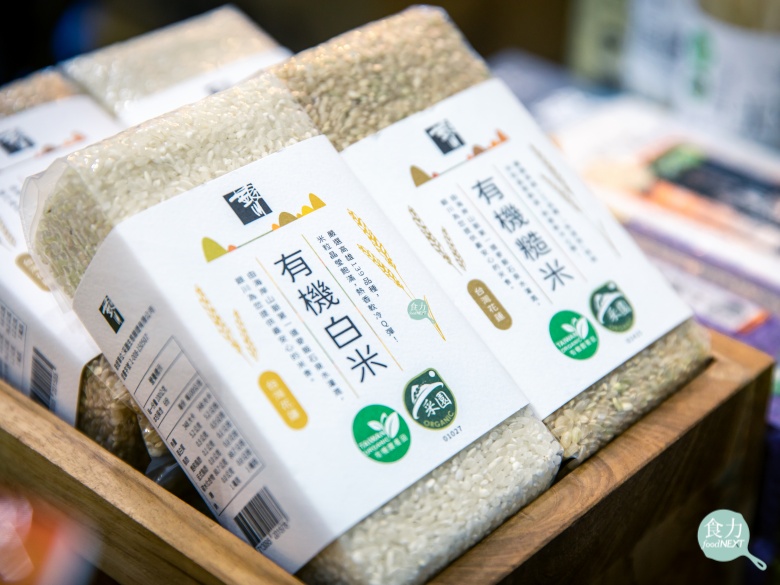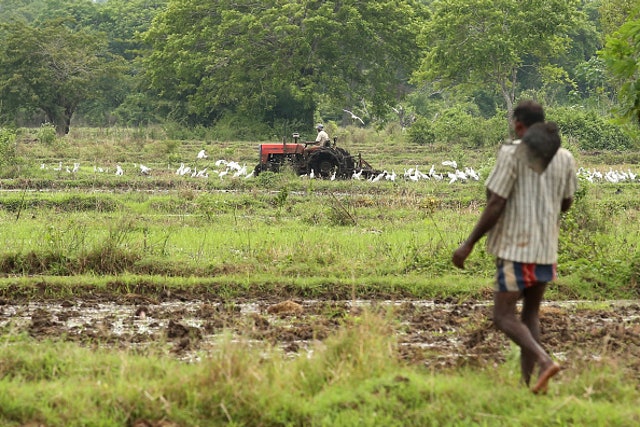Turning waste into earthworm manure and worm manure into organic fertilizer-A new choice for auxiliary farming
Stepping into the earthpicking farm in Nantou County, hidden in the covered soil, there are countless earthworms capable of dealing with agricultural waste. Yang Zhikai, the founder of Earthcollecting Music, carefully shoveled the soil from the bottom up, then put it down and stirred it up, took good care of it, and carefully built the earthworm ecology. In 2016, Yang Zhikai, an activist, returned to his hometown of Chiayi after graduating from the military academy. With the idea of simply starting a business, he decided to start earthworm farming as the direction of rural entrepreneurship.

He thought that in starting a business in rural areas, adding concepts such as social innovation and local creation could create more possibilities, so he went to the master's degree class of agricultural enterprise management at Chung Hsing University to study and supplement his knowledge, set up earthworm farms in Nantou, and specially provided earthworm manure to farmers in Chiayi, Yunlin and other places to help improve the growing environment.
Yang Zhikai decided to name the team "Circular" because its English pronunciation is associated with "circular agriculture." hearing this interesting name, Yang Zhikai can attract farmers and consumers to understand that the team takes the cultivation of "earthworm dung" as its specialty.
"it is really difficult to use exact figures to explain what temperature and humidity are suitable for breeding earthworms," says Yang Chih-kai. now the team's earthworm farming results have been accumulated on the basis of experience, because they want to create the most suitable environment for earthworms to grow. it is difficult to quantify the question of "what ingredients are rich in the soil so that earthworms survive better", which involves soil, humidity, temperature, and other factors.
He once wanted to make a breakthrough in earthworm breeding technology from the academic level, but there was no school in Taiwan to set up the teaching of earthworm farming, and he even encountered the bottleneck that there was a big gap between the reference papers and the actual breeding, because the mysteries that the soil could explore were too wide. even if the team controls the environmental factors the same as the reference paper, it is still unable to understand and control the reasons that affect the breeding results, and the team can only observe the effectiveness of each earthworm culture. Reverse what is right or wrong in the process of breeding earthworms.
Yang Zhikai overcame the dilemma that he was unable to learn the technology of earthworm farming from school. From testing the feasibility of earthworm manure on a small scale to mass production, learning and revising the plan while carrying out the plan, Yang Zhikai slowed down his dream of starting a business. At that time, the team looked through the literature and found that the technology of treating agricultural waste with earthworms abroad had matured, and the team began to think about whether it could be based on the original earthworm farming. In view of the current direct incineration of poultry droppings, space bags and other agricultural wastes for treatment.
The great transformation of waste earthworm manure connects with the education of food farmers
The team built earthworm farms before the idle livestock farms in Nantou County, and systematically planned the process of treating agricultural wastes such as livestock manure with earthworms. Many livestock farms in Chiayi and Yunlin provided agricultural wastes, while the team used bacteria to ferment organic wastes, waiting for earthworms to completely digest fermented organic matter, to produce earthworm feces, and finally to screen live earthworms and earthworm feces. The problem of environmental concessions and air pollution caused by the incineration of agricultural waste in Taiwan can also produce earthworm dung, an auxiliary farming material that can be used by farmers.
After establishing the procedures for dealing with agricultural waste, the team began to try to get in touch with farmers downstream of circular agriculture through several channels and promote the application of earthworm manure on farming. First of all, they picked up earthworm music and cooperated with those who were familiar with the flower market to sell and popularize earthworm manure to farmers, and collaborated with Miqi vegetable and fruit farm to test the effectiveness of earthworm manure, and planted general fertilizer and earthworm manure for experimental control. Try to find an environment that is more suitable for crop growth.
Weng Guanqi, founder of Miqi vegetable and fruit farm, said that after starting a two-year experiment on the effectiveness of earthworm feces, it was found that after using earthworm manure, the growing period of tomatoes on Miqi vegetable and fruit greenhouse farm was shortened by two weeks, the harvest time became longer, and the yield increased by 20%. Farmers near Miqi vegetable and fruit farm see such results and also want to try to pick up earthworm dung, "how much can be achieved than suing for the use of earthworm dung?" Farmers prefer to rely on what they see.
In order to improve the vision of circular agriculture and enhance the added value of agriculture, Earthpick does not follow the strategy of mass production of other auxiliary agricultural materials and only focuses on selling farmers, but more concerned about communication with livestock farms, the needs of farmers and the connection between products and consumers. To develop a marketing model that pays more attention to environmental sustainability, food farmer education and promotion is the business that Earthpick is working hard.
Wang Li-Yu, the founder of slow farming, who is in charge of food farmers' education and promotion, came to work on organic farms in 2015 to learn from farm owners to practice farming to sell back-end agricultural products. at that time, each farmer would go to the organic market in Kaohsiung to set up a stall to market his own farm products. At that time, I met a wife who bought plump corn and opened the leaves to look at it, only to find that a worm was wriggling among the kernels of corn. the wife was scared and screamed because she was afraid of vegetable insects. "in fact, the emergence of vegetable insects in farming is a good thing. It means that no harmful chemical additives have been added in the process of cultivating farming."
Wang Liyu said that due to the lack of understanding of the farmer's farming environment and farming production, and not understanding why vegetable insects appeared in farming, people's fear brought a blow to him, prompting him to launch a food education campaign in Yunlin townships such as Dounan, Douliu and Huwei Creek communities. he was invited to take part in the education, teaching and promotion of food farmers, and was invited to lead students to experience agricultural work through a slow farming team. Let people re-understand agriculture, no longer fear the land, and work together to improve the vision of circular agriculture.
Continuous communication makes farmers feel.
Even though Earthworms have been engaged in earthworm farming for five years, they still face a lot of tests. The current cooperative farmers are only Miqi Fruit Farm with representative results in the application of earthworm manure. Promoting earthworm manure to more farmers and communicating how to use earthworm feces are the direction of the team's efforts.
Yang Zhikai said smoothly that since farmers first consider the price when selecting suitable auxiliary materials for growing crops, farmers will give priority to using government-subsidized auxiliary materials, such as Changhong brand organic fertilizer, which can be subsidized by two yuan per kilogram.
Earthworm manure has not been included in the subsidy principle of domestic organic fertilizer, in contrast, it will lose the advantage of market competition, so cooperation with farmers must rely on continuous communication, first understand the characteristics of farming, and help to find out the appropriate amount of earthworm manure use. only by following the experimental group and the control group and observing the results can farmers actually feel that earthworm manure grows better because of earthworm manure.
"We still have to do a good job in the use of earthworm manure," says Yang Zhikai. Some tea farmers have bought earthworm manure from him and applied it, but because the tea garden has not been well irrigated, it is unable to show the auxiliary effect of earthworm manure. Instead, they are not willing to use it any more. No matter what kind of materials are used to help crop cultivation, tutoring and field management has always been a part that needs to be coordinated and run-in with farmers.
"the drainage of tomatoes is getting better, and agricultural production is expected to increase." even though there are a lot of challenges in serving farmers, after getting feedback from "crop growth is slowly improving," he is sure that the team is working in the right direction.
Practice of de-chemical cycle life
There are many auxiliary farming materials for farmers to choose from. What is so unique about earthworm manure that picks up earthworms? Yang Zhikai, who is in charge of tutoring the use of earthworm manure on the demonstration farm, said that because the fertilizers exposed to ordinary farmers on the market are not yet fully mature, once they are overused in the planting process, it will cause excessive reliance on chemicals, root burns and other conditions that are not conducive to agricultural growth, while earthworm manure is a sustainable farming material, although it can assist plant growth. However, too much emphasis on how much application can directly reflect the actual output is not the main demand for earthworm manure promotion.
Earthworm manure and fertilizer are different kinds of agricultural materials, but farmers often get mixed up and use earthworm manure as fertilizer. It is not enough to provide sustainable materials to farmers, and it is also a goal for the public to clearly understand the origin and use of sustainable materials.
For example, Public TV "Youth!" Our Dream program mentioned that Li Renhao, head of the flower market who worked with Earthpicking Music, said that the promotion of earthworm manure has caught up with the government's response to the trend of waste disposal in recent years, and sales are better. The Earthpicking team feels that the public's acceptance of "using earthworm manure as a material for farming and potted plants" has gradually increased, and helping the public to understand how sustainable materials can help improve the rural environment will be the goal of the team's efforts.
The team organized a waste disposal workshop in 2021, guided by the basic understanding of earthworms, introducing the application of earthworms in agriculture and how earthworms deal with agricultural waste. The workshop spread the basic knowledge of earthworm manure and taught how to treat raw kitchen waste at home, such as vegetable leaves, peels, etc., so as to let people understand their ability to dispose of waste, and initially establish the concept of circular agriculture. Give guidelines for the construction of local kitchen waste system, so that every family has the ability to take appropriate measures for waste, and expect people in the community to properly recycle and dispose of leafy vegetables and pericarps in daily life, so as to enhance the public's attention to the development of circular agriculture.
The Earthpicking team has been engaged in the treatment of agricultural waste with earthworms for five years, continuously promoting the concept of circular agriculture. Yang Zhikai said that it is hoped that people will know more about "earthworm manure can be used as a sustainable auxiliary farming material for agriculture and horticulture." and when choosing and purchasing agricultural products, they are willing to support the purchase of crops grown by land-friendly farming methods, which can also contribute to the development of circular agriculture in Taiwan.
- Prev

Organic rice growers shoulder the responsibility of nurturing agricultural talents! Yinchuan Sustainable Farm with Organic Life Camp
Organic rice growers shoulder the responsibility of nurturing agricultural talents! Yinchuan Eternal Farm launched the land restoration revolution with an organic life camp and came to Fuli Township, Hualien, Taiwan, where rice fields were everywhere in sight, and this was Frimi, one of the "three treasures of Fuli," in addition to Linden mushrooms and golden needles. Hualien has the largest organic matter in Taiwan.
- Next

Sri Lanka is on the verge of bankruptcy, "Tea for debt" Organic Agriculture Revolution aggravates the Food crisis?
Sri Lanka is in a particularly miserable position among the countries whose economies have been hit hard by the epidemic. The collapse in tourism revenues, the main source of foreign exchange, the decline in remittances from overseas workers, and the already serious debt crisis have greatly increased Sri Lanka's risk of default on its debt this year. According to the World Tourism and Travel Council (W
Related
- A one-day flower show brings 130 million yuan in orders! Nanhai, this Phalaenopsis exhibition is amazing
- What do the flower language and meaning of Lutheran tree mean? Precautions for planting Lutheran tree
- Encounter Chaoshan Kongfu tea, not without this cup of Phoenix single clump
- The durian market in Vietnam and Thailand is flooded. The price of imported durian has plummeted by 30-40% in a month.
- Shanghai solved the problem of local vegetable supply by planting 80,000 mu of green leafy vegetables.
- Wageningen University has become the best agricultural university in the world for the seventh time in a row.
- The strongest export season of South African grapes is full of challenges, with exports to Russia falling sharply by 21%.
- Sri Lanka is on the verge of bankruptcy, "Tea for debt" Organic Agriculture Revolution aggravates the Food crisis?
- Turning waste into earthworm manure and worm manure into organic fertilizer-A new choice for auxiliary farming
- Organic rice growers shoulder the responsibility of nurturing agricultural talents! Yinchuan Sustainable Farm with Organic Life Camp

